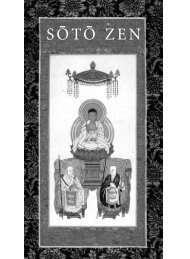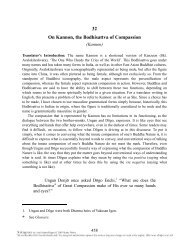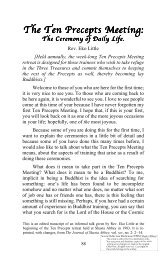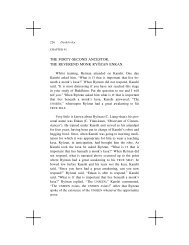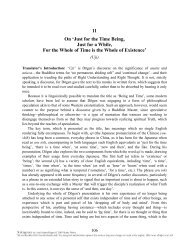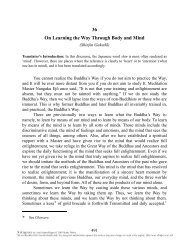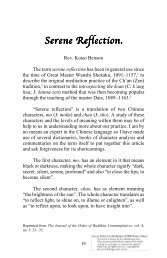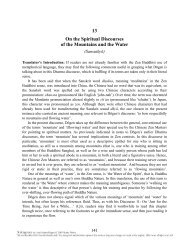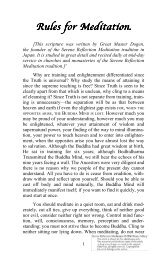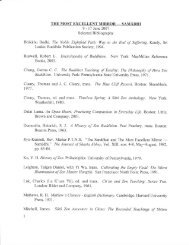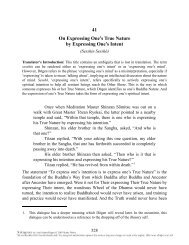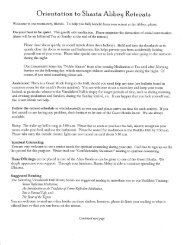Mujo Seppo - thezensite
Mujo Seppo - thezensite
Mujo Seppo - thezensite
You also want an ePaper? Increase the reach of your titles
YUMPU automatically turns print PDFs into web optimized ePapers that Google loves.
Shōbōgenzō: On the Dharma That Nonsentient Beings Express 657<br />
expressing the Dharma for the sake of the saintly ones, but is It put in a saintly way<br />
or in an ordinary, everyday way? In other words, when you have completely<br />
clarified the manner in which the nonsentient express the Dharma, you will realize<br />
that what you hear is no different from what the saintly hear. When you have been<br />
able to realize this, you will clearly understand the realm of a saintly one. In<br />
addition, you should continue to explore through your training the daily conduct<br />
that traverses the path through the heavens, transcending both the mundane and the<br />
saintly.<br />
❀<br />
The National Teacher said, “I do not hear It.”<br />
Do not presume that these words are easy to understand. Does he not hear It<br />
because he has gone beyond the mundane and transcended the saintly? Or does he<br />
not hear It because he has torn asunder the old nest of ‘the worldly versus the<br />
saintly’? By your making a diligent effort, you can realize what he is saying.<br />
❀<br />
The National Teacher said, “Fortunately for you, I do not hear<br />
It. If I heard It, I would be on the level of the saints.”<br />
This statement is beyond being the best way of putting it and beyond being just<br />
another way of putting it. His saying “Fortunately for you, I…” is beyond the<br />
mundane and the saintly. Might his “Fortunately for you, I…” be that of an<br />
Ancestor of the Buddha? Because an Ancestor of the Buddha is beyond the<br />
mundane and has transcended the saintly, what he hears may not be the same as<br />
what the saintly hear.<br />
Pursuing the chain of reasoning behind the National Teacher’s statement<br />
“Then you could not hear my voicing of the Dharma,” you should stew on what the<br />
enlightened state of Buddhas and saintly ones is. The National Teacher’s<br />
underlying principle is, namely, “When the nonsentient express the Dharma, the<br />
saintly can hear It, and when the National Teacher expressed the Dharma, the monk<br />
could hear It.” You should, day after day, deeply and at length, do your utmost to<br />
explore this chain of reasoning through your training. Now I would like to put it to<br />
the National Teacher—and I am not asking about sentient beings after they hear the<br />
Dharma—how is it with sentient beings at the very moment when they hear the<br />
Dharma being expressed?



